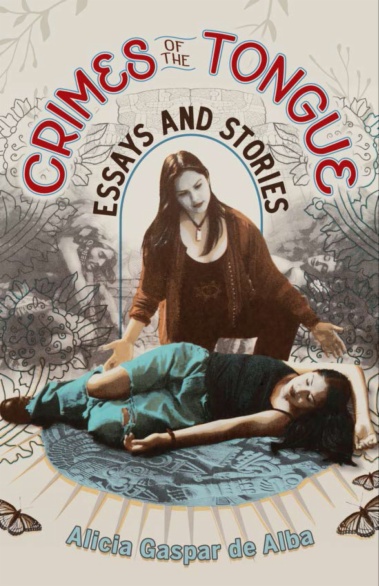

A native of the El Paso / Ciudad Juárez region, acclaimed author and scholar Alicia Gaspar de Alba writes that she grew up with “a forked tongue and a severe case of cultural schizophrenia, the split in the psyche that happens to someone who grows up in the borderlands between nations, languages and cultures.” Border dwellers struggle with place and identity in the short fiction included in this collection. An El Paso-born American citizen with a high school diploma and a talent for writing seeks a job as a reporter at the El Paso Herald after World War I, but gets hired as a janitor and research specialist instead. A Mexican woman takes her young daughter north to protect her from sexual abuse, only to leave the girl with relatives while she crosses the river in search of a job and a new life. And a college student gets a Tarot reading to help her discern the historical symbolism of her bicultural identity. The award-winning writer explores other “crimes of the tongue” in the essays in this volume: pochismo, or the mixing of English and Spanish, as both a family taboo and a politics of identity; the haunting memory of La Llorona, protector of undocumented immigrants and abandoned children, and her blood-curdling cry of loss and revenge; the intersection of the personal and the political in the transgressive work of Chicana/Latina artists; the sexual and linguistic rebellions of La Malinche and Sor Juana Inés de la Cruz; and the reverse coyotaje, or border crossing, of Chicana lesbian feminist theory translated into Spanish and visual art as a way of sneaking this counterhegemonic pocha poetic thought into Mexico. These essays and stories are always intellectually rigorous and often achingly personal.